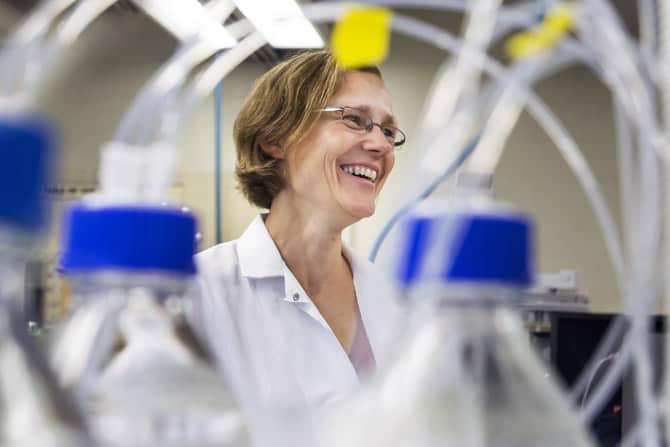Facilities

Advanced Civil Engineering Materials Research Laboratory (ACE-MRL)
Advanced Civil Engineering Materials Research Laboratory (ACE-MRL) connects materials design with structural and environmental performance, in order to drive infrastructure sustainability via nano- and micro-structure control and address contemporary challenges in civil infrastructure. The ACE-MRL fosters the creation of a next generation built environment harmonious with the natural environment via advanced materials technologies. Both graduate and undergraduate students at the ACE-MRL are involved in basic research topics driven by societal needs and sponsored by a combination of governmental (NSF, NIST, DoE) and industrial entities in energy, water, building and transportation infrastructure sectors.
Cementitious Composites Laboratory
The Cementitious Composites Laboratory focuses on studying and enhancing the behavior of advanced cementitious composite materials for structural engineering applications. The core research involves material testing, developing of new fibers and improving manufacturing techniques, as well as the tailoring and optimization of cementitious composites to best suit structural engineering applications.
Center for High-Performance Materials, Sensors, and Structures for Next Generation Infrastructure
The Center for High-Performance Materials, Sensors, and Structures for Next Generation Infrastructure performs pioneering work in the design and structural applications of novel materials and advanced sensing systems for the design of durable infrastructure systems.
Center of Excellence in Bridges and Structures
The Center of Excellence in Bridges and Structures performs research related to infrastructure facilities such as highway bridges. The projects are sponsored by NSF, NCHRP, Michigan DOT and other State DOTs. Research topics include development of bridge load and resistance models, evaluation of existing structures by analysis and field testing.
Computational Community Resilience
The ICoR group (“Interdependencies in Community Resilience”) is an NSF-funded initiative seeking to link disparate disciplines in disaster science and engineering together. Using a new software framework developed internally for this purpose (along with example simulation systems), the group’s efforts allow models to seamlessly interface with each other, fostering new collaborations between researchers of different backgrounds.
Computational Structural Simulation Laboratory
The Computational Structural Simulation Laboratory explores new computational strategies and methodologies for high fidelity simulation of the transient behavior of structural systems. The focus is on modeling failure and collapse of systems subjected to extreme events such as earthquakes, blast and impact.
Hydraulics Engineering Laboratory
The hydraulic engineering laboratory investigates fundamental and applied fluid mechanics. Fundamental work includes measurements of turbulence, steady and oscillatory (wave) boundary layers, and sediment transport. Applied work includes studies of river restoration, fish behavior near diversion structures, damage to buildings and infrastructure due to floods (including tsunamis and hurricanes), and coastal erosion.
Laboratory for Intelligent Structural Technology
The Laboratory for Intelligent Structural Technology investigates low-cost wireless sensors for monitoring the behavior of structures during ambient or forced vibrations.
Pavement Research Center of Excellence
The Pavement Research Center of Excellence is a comprehensive materials and structural testing facility for rigid concrete pavements. The center, led by Dr. Will Hansen, is fully equipped to study Portland cement concrete and concrete pavements at all levels, from microstructural analysis to full scale slab testing.
Geotechnical Engineering Facilities
The Geotechnical Engineering Facilities have an outstanding and very diverse collection of equipment that spans the entire breadth of testing in the field and laboratory. Laboratory facilities include the Geotechnical Testing Laboratory, the F.E. Richart Jr. Soil Dynamics Laboratory, the Geoenvironmental Laboratory, the Geotechnical Research And Visualization Engineering Laboratory (G.R.A.V.E.L.) and the Computational Geotechnics Laboratory. Field facilities include a seven-ton cone penetration testing rig, a 20-foot diameter “bottomless, clean sand” pit and instrumentation to perform shear wave velocity measurements in the field.
Structural Engineering Laboratory
The Structural Engineering Laboratory provides a state-of-the-art facility for structural testing of large-scale structural elements and subassemblies under monotonic and quasi-static cyclic loading.